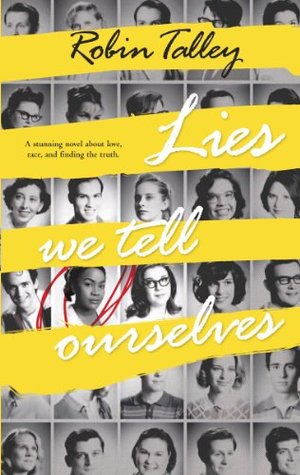It's been a while since I last did one of these - check out #1 and #2! - and today I'm going to do something a little different: instead of recommending a book that's like a film, I'm going to recommend a book that's nothing like a film at all. Why? Because Grease is kind of awful.
*ducks*
... Is it safe to come out now?
Now when I say Grease is awful, I don't mean it's an awful musical. It's not my favourite - I like my musicals a bit more epic, like The Lion King and Les Mis - but there's no denying that it's a fun musical. People pop out of the womb already knowing all the words to pretty much every song, and because it's been a favourite for so many years, thanks to the 1978 film, it's the kind of story that entire families will sit down to watch together at Christmas. Kids love the songs, parents remember watching it when they were young, and grandparents can remember those unfortunate hairstyles.
There's actually a lot about the story that I like. I think Danny Zuko is quite a charming hero, struggling to maintain his reputation as the high school bad boy while also falling head over heels for a girl who doesn't quite fit into his circle of friends, and I love Rizzo who, in my opinion, is one of the most complex and interesting characters in the musical.
My biggest problem with the story is the way it treats Sandy. I'm all for coming of age stories, including coming of age stories set at high schools, but Sandy's story concludes with her being rewarded with her happy ending because she essentially changes everything about who she is. I'm not suggesting that because she smokes and puts on some leathers she's no longer the same kind, innocent girl, but there's something about a girl who changes that much for the sake of a boy that makes me sad.
 Grease is set in 1958, and Robin Talley's debut novel, Lies We Tell Ourselves, is set a year later in 1959, with a very, very different atmosphere.
Grease is set in 1958, and Robin Talley's debut novel, Lies We Tell Ourselves, is set a year later in 1959, with a very, very different atmosphere.While there are some similarities between Grease and Lies We Tell Ourselves in that they're both set at high school in the '50s, and both feature a love story between two people from very different social circles, they're not alike at all. Lies We Tell Ourselves tackles racism in the mid-20th century, and in particular how black students struggled when they were finally admitted to better, previously all-white schools.
It's one of those books that'll just hit you right where it hurts, because it's so difficult to think that human beings were treated in this way. It's even more difficult to think that many are still being treated in this way.
Sarah Dunbar is one of the first black students to be admitted to her previously all-white local high school, and the novel follows her as she battles racism on a daily basis and also tries to understand her sexuality. Everything becomes even more complicated when she meets and develops feelings for Linda Hairston, a white girl whose father is a huge bigot.
If you want to know my thoughts on the book then you can check out my review here. From what I've said I think you can gather that other than the '50s setting and vaguely Romeo and Juliet style romance there are practically no similarities between Grease and Lies We Tell Ourselves, but that's no bad thing. Lies We Tell Ourselves is the perfect story if you want to read a story set in the '50s that actually deals with issues from the '50s beyond who's taking who to the dance. It's a powerful debut from a much-needed voice in the world of YA, and one that challenges the fairly problematic way that Grease portrays the '50s, where's there's not a poc in sight and oh wasn't everything just smashing?
For me Lies We Tell Ourselves is like a version of Grease where Sandy falls in love with Rizzo, and the musical numbers are replaced by explorations of racism and sexuality. If that sounds more like the kind of story you want set in the '50s, then you need to pick up this book!
How do you feel about Grease?




